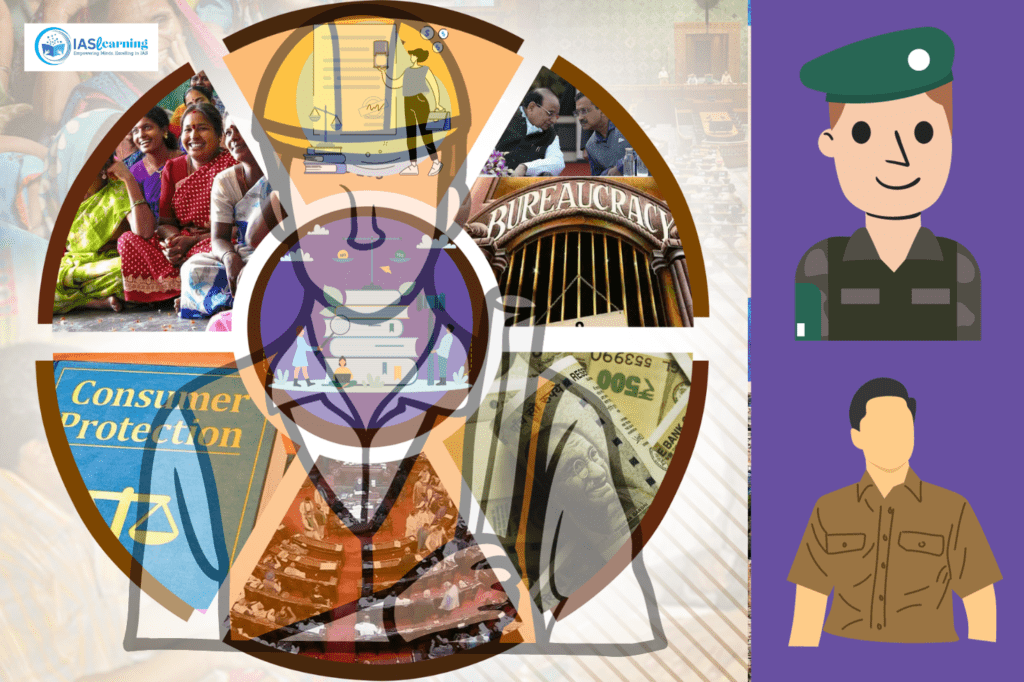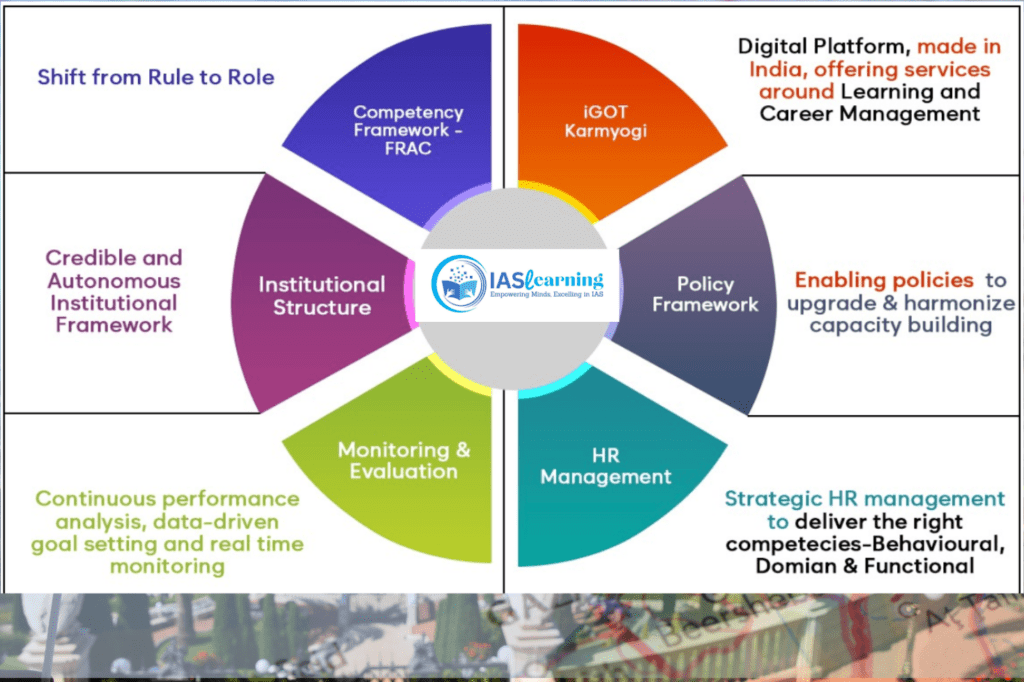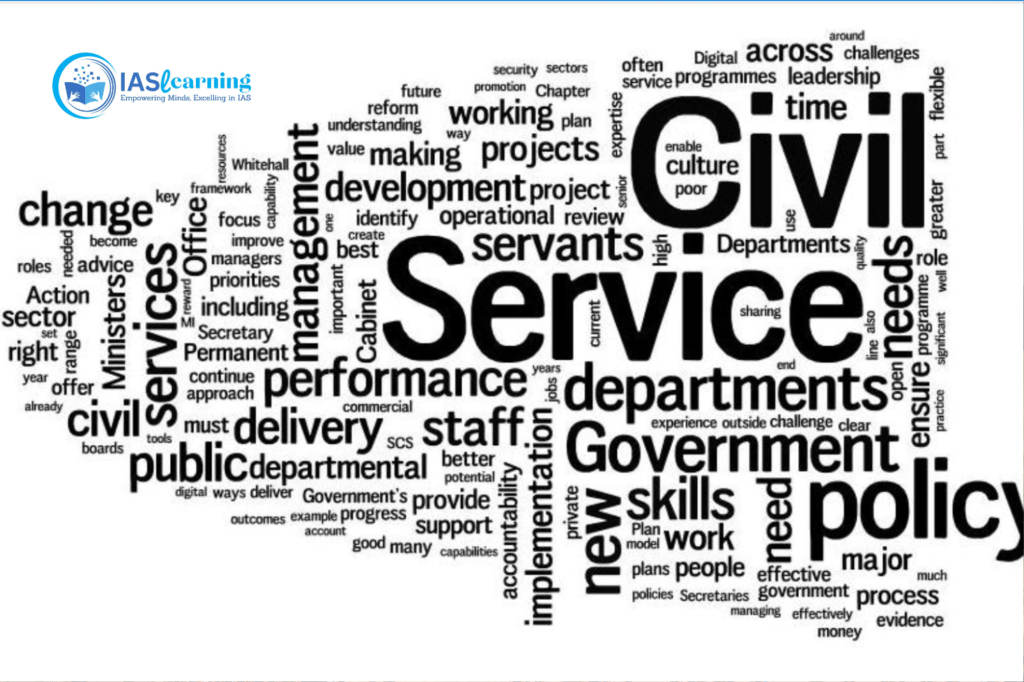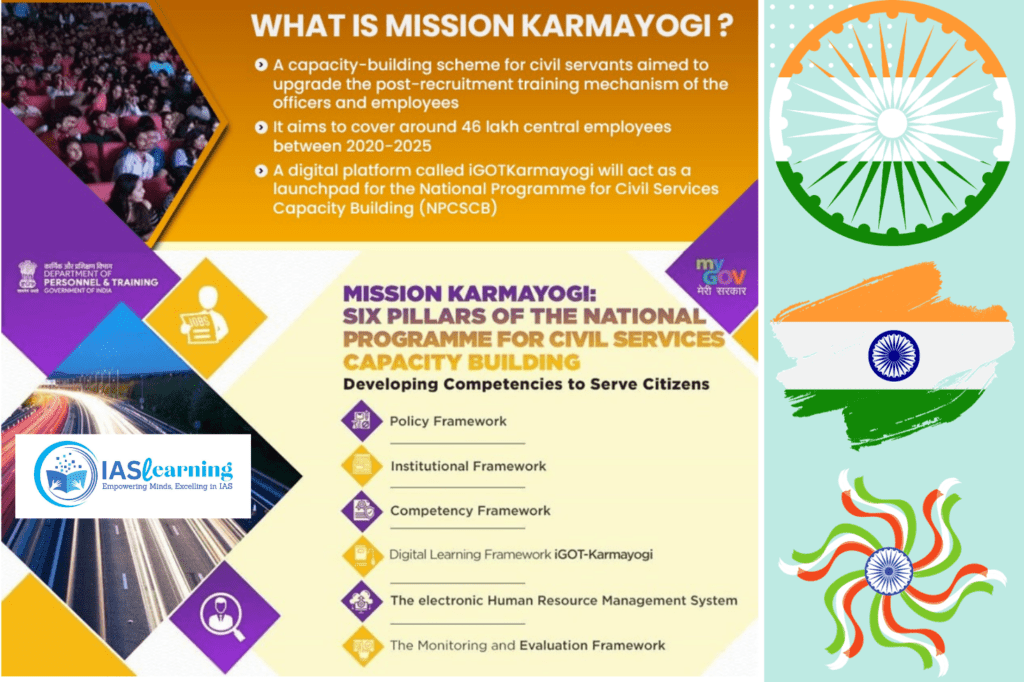Introduction to Importance of civil service in a democratic government
Expertise and Policy Formulation: Civil servants often possess specialized knowledge and expertise in various fields, which is essential for drafting and refining policies. They provide valuable input to political leaders, helping to shape effective and well-informed policies that address the needs and concerns of the citizens.
Continuity and Stability: Civil service provides continuity in governance, especially during transitions between different administrations or political parties. This ensures that essential government functions and services continue uninterrupted, promoting stability in the functioning of the state.
Neutrality and Impartiality: Civil servants are expected to be politically neutral and impartial, serving the government of the day without bias. This commitment to non-partisanship is vital for upholding the democratic principles of fairness and equity in governance.
Administrative Efficiency: The bureaucracy is responsible for the efficient and effective implementation of government programs and services. It’s their duty to ensure that public resources are used judiciously and that government initiatives are executed with precision.
Regulatory and Oversight Functions: Civil servants often have regulatory and oversight roles, ensuring that laws and regulations are enforced and that public institutions operate within legal boundaries. This helps maintain the rule of law in a democracy.
Adaptability and Modernization: In an era of rapid technological advancements and changing societal dynamics, civil service must continually adapt and modernize to meet new challenges. The bureaucracy should embrace innovation and digitalization to better serve the evolving needs of the public.
Local Governance: Civil service operates at various levels of government, from local to federal, and plays a crucial role in local governance. Local civil servants are often the first point of contact for citizens and have a direct impact on their daily lives.
Challenges and Reforms: The civil service also faces challenges such as bureaucracy, red tape, and inefficiencies. Reforms are often necessary to streamline operations, reduce corruption, and enhance transparency.
Ethical Conduct: Maintaining high ethical standards is paramount for civil servants. Upholding integrity and honesty in public service helps build public trust and confidence in the government.
International Cooperation: Civil service plays a role in diplomacy and international relations. Civil servants represent their countries in various international forums and collaborate with other nations to address global issues.

The Mission Karmayogi Programme is a significant initiative aimed at addressing various challenges in administering a diverse and complex democratic society, particularly within the context of an ambitious and aspiring population.
Addressing Complexity: The program acknowledges the complexity of governing a vast and diverse nation like India with a multifaceted democratic system. It seeks to bridge the gap between the intricacies of governance and the aspirations of the demography.
Capacity Building: Rather than starting from scratch, the focus of Mission Karmayogi is on enhancing the capabilities of civil servants. This includes improving their behavioral skills, functional knowledge, and domain expertise, making them better equipped to serve the public effectively.
Changing Behaviour and Attitudes: The program recognises that to bring about positive change in governance, it’s essential to transform the behaviour and attitudes of civil servants. This shift in mindset is vital for ensuring that they are more responsive, adaptable, and citizen-centric in their approach.
Continuous Upskilling: The initiative emphasises the need for continuous upskilling of civil servants. In a rapidly changing world, this ensures that the bureaucracy remains adept and responsive to evolving challenges, technologies, and societal needs.
Quality of Service: One of the primary objectives of Mission Karmayogi is to enhance the quality of services provided by the civil service. This involves a shift from a rigid adherence to rules to a more role-based approach, where civil servants take on a more proactive and service-oriented role in addressing citizen needs.

Challenges
Scale and Heterogeneity: The sheer size and complexity of the bureaucratic apparatus in a country as vast and diverse as India can pose a challenge. It is difficult to ensure a uniform quality of service delivery across different regions with varying organisational cultures, social contexts, and numerous repetitions. Achieving consistency in service quality at the individual iteration level can be daunting.
Shift from ‘Rule’ to ‘Role’: The program’s emphasis on shifting from a ‘rule-based’ approach to a ‘role-based’ one is a fundamental change. While this shift aims to empower functionaries and reduce hierarchical rigidity, it can also bring challenges. Vesting autonomous action in a million functionaries may dilute hierarchies and create a more horizontal response structure. This could impact decision-making, coordination, and consistency in service delivery.
Adaptation to Diverse Social Contexts: The Mission Karmayogi’s focus on enhancing the adaptability of the civil service to diverse social contexts is essential. However, this change may face resistance or difficulties in implementation due to entrenched practices, bureaucratic inertia, and varying regional needs and expectations.

Way Forward
Continuous Training and Development: Invest in ongoing training and development programs to equip civil servants with the latest skills and knowledge relevant to their roles. Ensure that training is tailored to address the specific needs and challenges of different departments.
Performance Evaluation: Implement a robust performance evaluation system that focuses on outcomes and the quality of service delivery. Recognize and reward civil servants for exemplary performance, innovation, and citizen-centric approaches.
Feedback Mechanisms: Establish effective feedback mechanisms for citizens to provide input on government services. Use this feedback to identify areas for improvement and to measure the impact of reforms.
Technology Integration: Embrace digital technologies and data analytics to streamline administrative processes, improve transparency, and enhance service delivery. Ensure that civil servants are well-versed in using these tools.
Adaptability and Flexibility: Promote a culture of adaptability and flexibility within the civil service. Encourage civil servants to think creatively and proactively to address emerging challenges.
Collaboration: Foster collaboration between different departments and levels of government to create synergies and avoid duplication of efforts. Promote a whole-of-government approach to problem-solving.
Leadership Development: Identify and nurture future leaders within the civil service. Effective leadership is vital for driving change and ensuring that the mission’s objectives are met.
Citizen Engagement: Engage citizens in the process of governance by involving them in decision-making, policy formulation, and feedback mechanisms. This will help ensure that services meet the actual needs of the public.
Monitoring and Evaluation: Establish a rigorous monitoring and evaluation framework to assess the impact of the transformation efforts. Regularly review progress and make necessary adjustments based on the results.
Legal and Regulatory Reforms: Address any legal and regulatory barriers that hinder the transformation process. Streamline rules and regulations to facilitate a more agile and responsive civil service.
Communication and Public Awareness: Create awareness among citizens about the changes in the civil service and the benefits of these reforms. Transparent communication can help build trust and support for the transformation.
Political Support: Secure consistent and bipartisan political support for the transformation of the civil service. This ensures that reforms are not subject to changes with each new government.

Conclusion
The government’s endeavour to transform bureaucrats into role-driven civil servants is a significant step toward enhancing public welfare. This shift holds particular importance in a youthful democracy like India, where a substantial portion of the population relies on government services. The government’s emphasis on values such as Bhagidari (partnership), trust, innovation, and impactful service delivery signifies a citizens-first approach.
By repurposing the role of the civil servant as a ‘Karmayogi,’ the government aims to foster increased prosperity and well-being among its citizens. This transformation reflects a commitment to serving the public with dedication, efficiency, and a proactive spirit, ultimately contributing to the betterment of society and the nation as a whole.
FAQs
1.What is the Mission Karmayogi Programme?
- The Mission Karmayogi Programme is a government initiative in India aimed at transforming the civil service by focusing on capacity building, behavior change, and enhancing the quality of public services.
2. Why is this transformation of the civil service necessary?
- This transformation is necessary to ensure that the civil service is more responsive, adaptable, and citizen-centric. It aims to meet the evolving needs of a diverse and aspiring population in a democratic setting.
3. What are the key principles of the Mission Karmayogi Programme?
- The program emphasizes capacity building, changing behavior and attitudes of civil servants, continuous upskilling, and shifting from a ‘rule-based’ to a ‘role-based’ approach.
4. How will this transformation benefit citizens?
- The transformation is expected to lead to improved public services, more efficient governance, and a greater focus on citizens’ needs, ultimately enhancing their overall well-being.
5. What challenges does the program face?
- Challenges include the scale and heterogeneity of the country, resistance to the shift from ‘rule’ to ‘role,’ and the need to adapt to diverse social contexts.
6. How can the government ensure the success of this program?
- Success can be ensured through continuous training, performance evaluation, feedback mechanisms, and a focus on technology and adaptability. Collaboration, leadership development, and legal and regulatory reforms are also key.
7. What role can citizens play in this transformation?
- Citizens can provide feedback on government services, actively engage in public discourse, and participate in decision-making processes to ensure that their needs and expectations are met.
8. How can the civil service adapt to rapidly changing societal and technological trends?
- The civil service should embrace digital technologies, data analytics, and continuous training to stay up-to-date with emerging challenges and opportunities.
9. Will this transformation affect the hierarchical structure of the civil service?
- The shift from ‘rule’ to ‘role’ may dilute hierarchies and empower individual functionaries. While hierarchies might change, the overall structure of the civil service will likely adapt to maintain efficiency.
10. How long will it take to see the impact of the Mission Karmayogi Programme?
- The timeline for seeing the impact will vary, but with consistent implementation and performance evaluation, positive changes in public services and governance efficiency should become noticeable over time.




